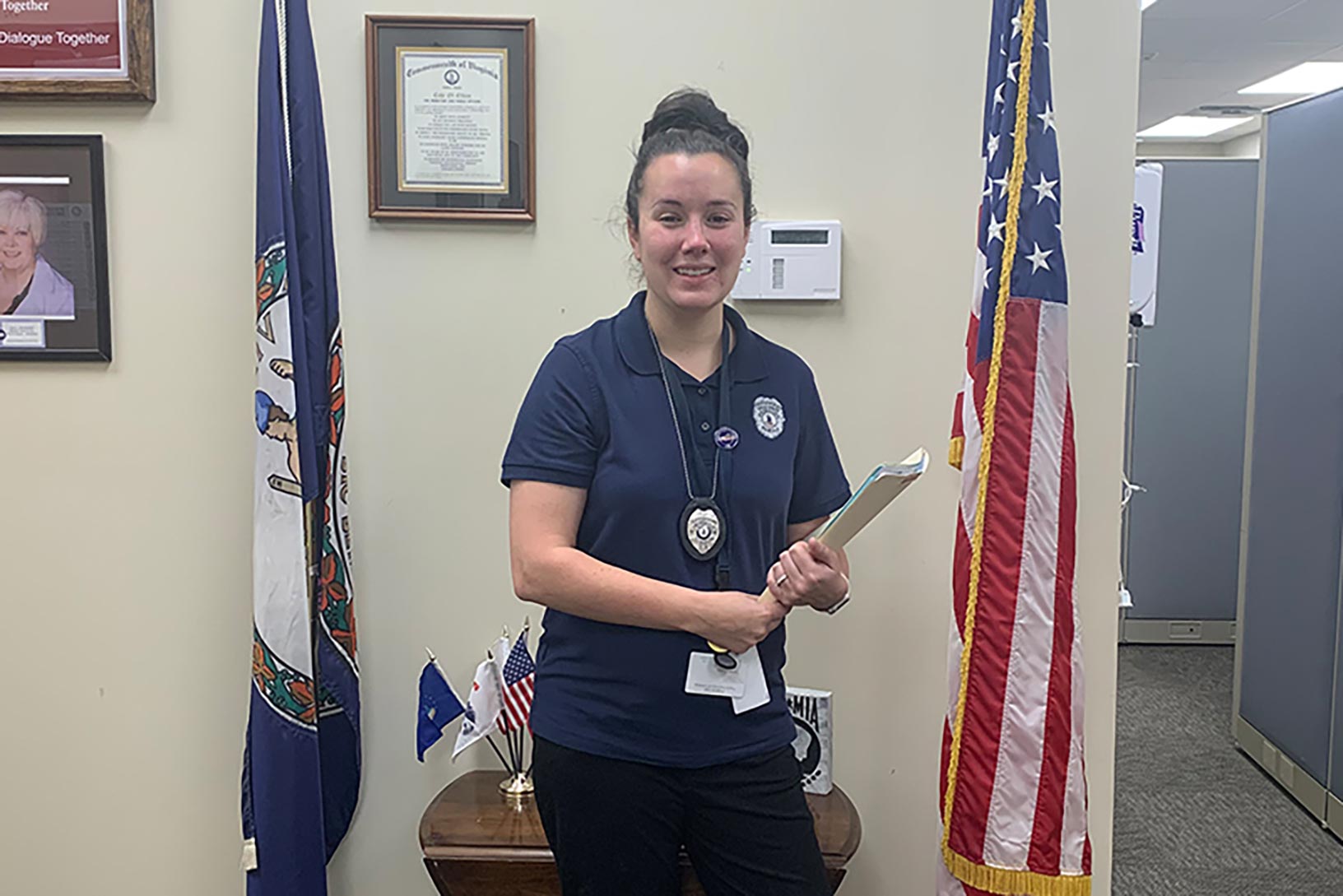Clarion
Sociology grad puts education to work in corrections
Samuels keeps sex offenders in compliance

When Brittney Samuels was a PennWest Clarion student pursing a bachelor’s degree in sociology with a minor in social work, she went to class with the mindset that she wanted to help people and to give them a chance. After graduating in 2014, she put her education to work at Buckingham Correctional Center, part of the Virginia Department of Corrections.
Ten years ago, after having been a corrections officer then a counselor, Samuels took her knowledge and desire to help people outside the walls of the facility as a probation officer. In March of last year, she completed training to work specifically with sex offenders.
As a sex offender specialist probation officer, her background in social work is essential to working effectively.
“I have to be able to build rapport with them and treat them with respect,” Samuels said. “Rapport is such a huge thing. They’ll open up once they feel comfortable with me.”
While the things they’ve done might be awful, she has to be able to switch off being judgmental.
“I can’t do my work effectively if I’m judgmental,” she said.
A typical day is anything but typical.
“You never know what you’ll get when you walk into the probation office. I’ll have either a few appointments or home field contacts with sex offenders,” she said.
General office appointments entail asking questions based on the individuals’ records.
“Are you in a relationship? Are you using alcohol? Medications? Are you using the internet? It really depends on what they were convicted of,” Samuels said.“Some have special instructions. I interact with them to make sure they know what their requirements are.”
During field contacts, Samuels makes sure the individuals live where they say they live. She checks the surrounding areas, outside structures, inside their homes and their bedrooms. Sex offenders are required to register from every 30 days to once a year, depending on their conviction.
Samuels said it’s a job in which she can never catch up, but she finds it rewarding to help people and protect the community.
“I do put people back in jail when they don’t follow the requirements,” she said.“I had a guy on GPS (monitoring). I can look at his phone, and I saw that he was contacting his victim, a 14-year-old girl. I put him back in jail to keep the community safe.”
A common belief is that sex offenders can’t be rehabilitated, but Samuels has worked with offenders who have turned their lives around.
One offender successfully completed probation, then earned his bachelor’s degree and acquired a commercial driver’s license. He works as a truck driver, and he volunteers to speak at schools.
“He talks about his offense and how he’s been able to change,” Samuels said. “He has nothing but remorse and regret.”
Despite his progress, he’ll always be required to register on the sex offender registry.
In addition to her work as a probation officer, Samuels volunteers as a crisis intervention instructor. She teaches skills that help prison employees de-escalate situations before they grow out of control.
She is grateful for how her Clarion education has helped her to grow in her field.
“I have to credit Dr. (Brenda) Manno. I didn’t know a thing about sex offenders,” she said. Through Manno’s social work classes, she understands diagnoses such as schizophrenia, autism, anxiety and depression, and how they impact people, particularly those who are incarcerated.
Having grown up with severe ADHD, Samuels used the support resources that Clarion offers, including tutoring and the writing center, and she studied on Carlson Library’s second floor, which is a designated quiet zone.
“PennWest Clarion is a great place to learn.”